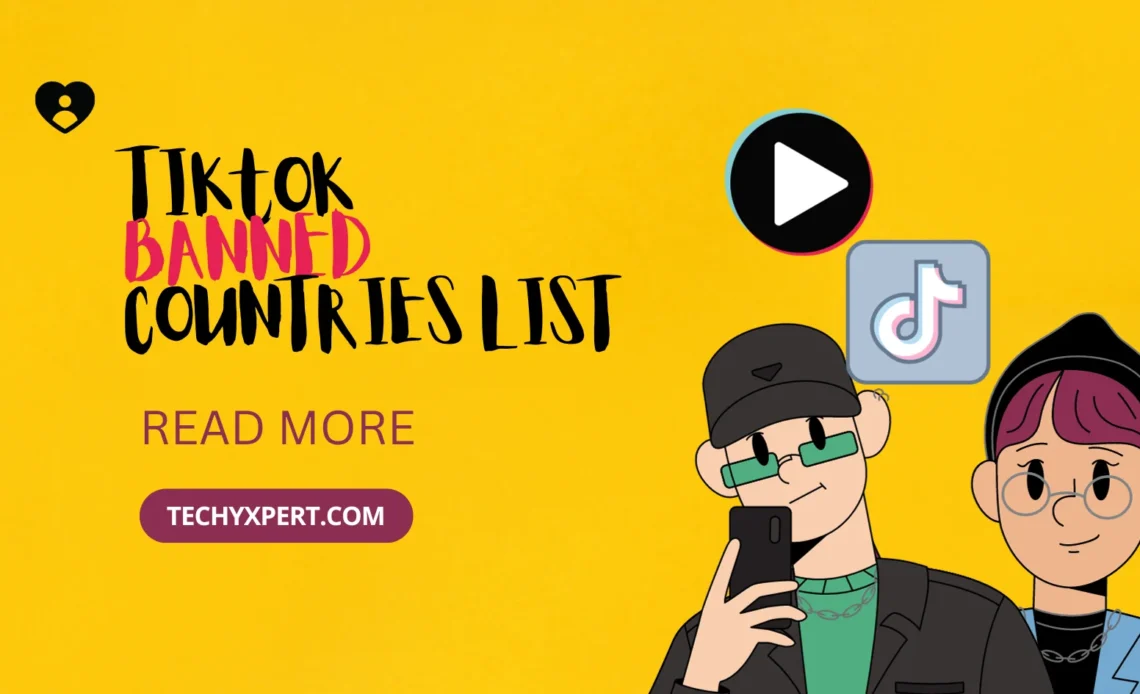
TikTok, the short-form video-sharing platform that took the world by storm, has faced its fair share of controversies. While it’s immensely popular among users worldwide, it’s also drawn the attention of governments concerned about various issues. This article will explore which countries have banned TikTok, the reasons behind these bans, and the broader implications of such actions.
TikTok, launched in 2016, has become a global sensation with over a billion users. It allows people to create and share short, entertaining videos, making it a favorite among Gen Z and millennials. However, not all is rosy in the world of TikTok. It has faced scrutiny and bans in several countries, raising questions about its future.
II. Why Some Countries Have Banned TikTok
Data Privacy Concerns
One primary reason for TikTok bans is data privacy. Concerns have arisen over how the platform collects and handles user data, raising alarms about potential misuse. Governments worry that sensitive personal information might end up in the wrong hands.
National Security Apprehensions
National security is another major concern. Some governments fear that TikTok, being a Chinese-owned app, could be used for espionage or data gathering on their citizens. This concern has led to bans in countries like the United States and India.
Cultural and Societal Reasons
Cultural and societal factors also play a role in TikTok bans. Some countries believe that the content on TikTok goes against their cultural norms and values, promoting behaviors they find objectionable.
III. List of Countries That Have Banned TikTok
Let’s take a closer look at some of the countries that have banned TikTok:
1. India
India was one of the first countries to ban TikTok in 2020, citing data privacy concerns. The ban affected millions of users and content creators in the country of India.
Read More: Free Fire India Launch Date and Time Confirmed 2024
2. United States (Brief Mention)
While the U.S. did not impose a nationwide ban, it took steps to restrict TikTok’s operations due to national security concerns, leading to ongoing legal battles.
3. Indonesia
Indonesia temporarily banned TikTok in 2018, expressing concerns about content containing pornography, blasphemy, and inappropriate behavior.
4. Bangladesh
Bangladesh banned TikTok in 2018 due to similar concerns about objectionable content.
5. Pakistan
In 2020, Pakistan banned TikTok over concerns about immoral and indecent content, but the ban was later lifted.
6. United Arab Emirates
The UAE banned TikTok temporarily in 2018, citing concerns about negative social influences and inappropriate content.
7. Iraq
Iraq temporarily banned TikTok in 2018, citing the same concerns as other countries.
8. China (Brief Mention)
Interestingly, TikTok’s home country, China, has its version called Douyin, which is distinct from the international TikTok app.
9. More Cases of Partial Bans
Several other countries have imposed partial bans or restrictions on TikTok, indicating the global concerns surrounding the platform.
IV. The Impact of Bans on TikTok
Economic Implications
Bans on TikTok have significant economic implications. The platform generates revenue for content creators, influencers, and advertisers. When it’s banned, these income streams dry up.
Alternatives to TikTok
Bans have led to the rise of alternative platforms like Instagram Reels and YouTube Shorts, which seek to capture TikTok’s displaced user base.
User Reactions and Movements
TikTok users have not taken these bans lightly. They’ve organized campaigns and petitions to save the platform, emphasizing its cultural impact and value.
V. How TikTok Has Responded to Bans
Content Moderation Efforts
TikTok has ramped up content moderation efforts to address concerns and comply with local regulations.
Legal Challenges
TikTok has also taken legal action in some countries to contest bans, arguing for freedom of expression and access to information.
Compliance with Local Regulations
To continue operating in some countries, TikTok has had to adapt and comply with local regulations, which often involve content restrictions.
VI. Lessons Learned from TikTok’s Global Ban Experience
The TikTok bans have highlighted several important lessons:
The Importance of User Data Protection
TikTok’s experience underscores the importance of robust data protection measures, especially in the age of digital privacy concerns.
Balancing Free Speech and Regulation
Governments worldwide are grappling with how to balance free speech and content regulation on platforms like TikTok, sparking crucial debates.
Navigating International Markets
TikTok’s global presence requires careful navigation of diverse cultural, legal, and regulatory landscapes.
VII. Conclusion
In conclusion, the question of which countries have banned TikTok reveals a complex interplay of factors, including data privacy concerns, national security, and cultural values. TikTok’s response to these bans and the lessons learned from its experiences demonstrate the evolving landscape of social media platforms in a world where digital connections are more critical than ever.
Frequently Asked Questions (FAQs) on TikTok Banned Countries List
- Is TikTok banned in the United States?
- The United States did not impose a nationwide ban on TikTok but took steps to restrict its operations due to national security concerns.
- Why was TikTok banned in India?
- TikTok was banned in India in 2020 due to concerns about data privacy.
- Are there alternatives to TikTok after a ban?
- Yes, several alternative platforms like Instagram Reels and YouTube Shorts have gained popularity as alternatives to TikTok.
- How has TikTok responded to bans?
- TikTok has responded by intensifying content moderation, legal challenges, and adapting to comply with local regulations.
- What lessons can be learned from TikTok’s global ban experience?
- Lessons include the importance of user data protection, balancing free speech and regulation, and navigating diverse international markets.




